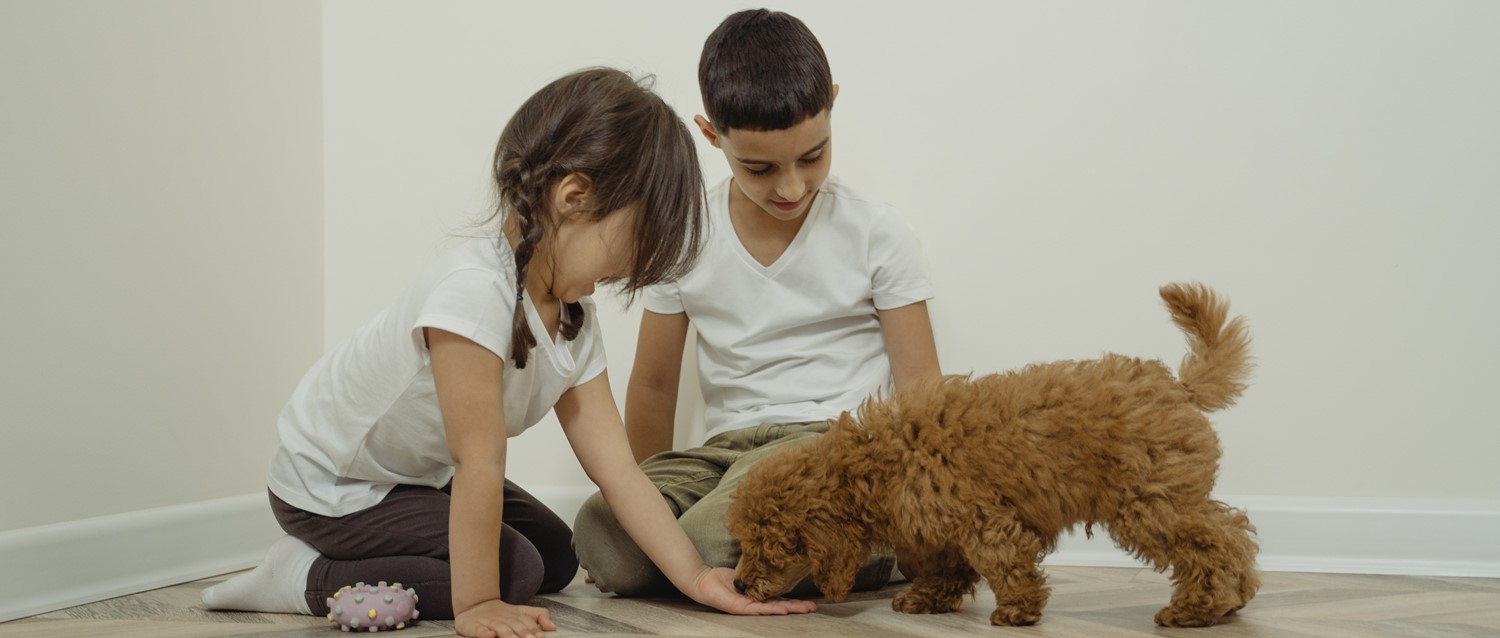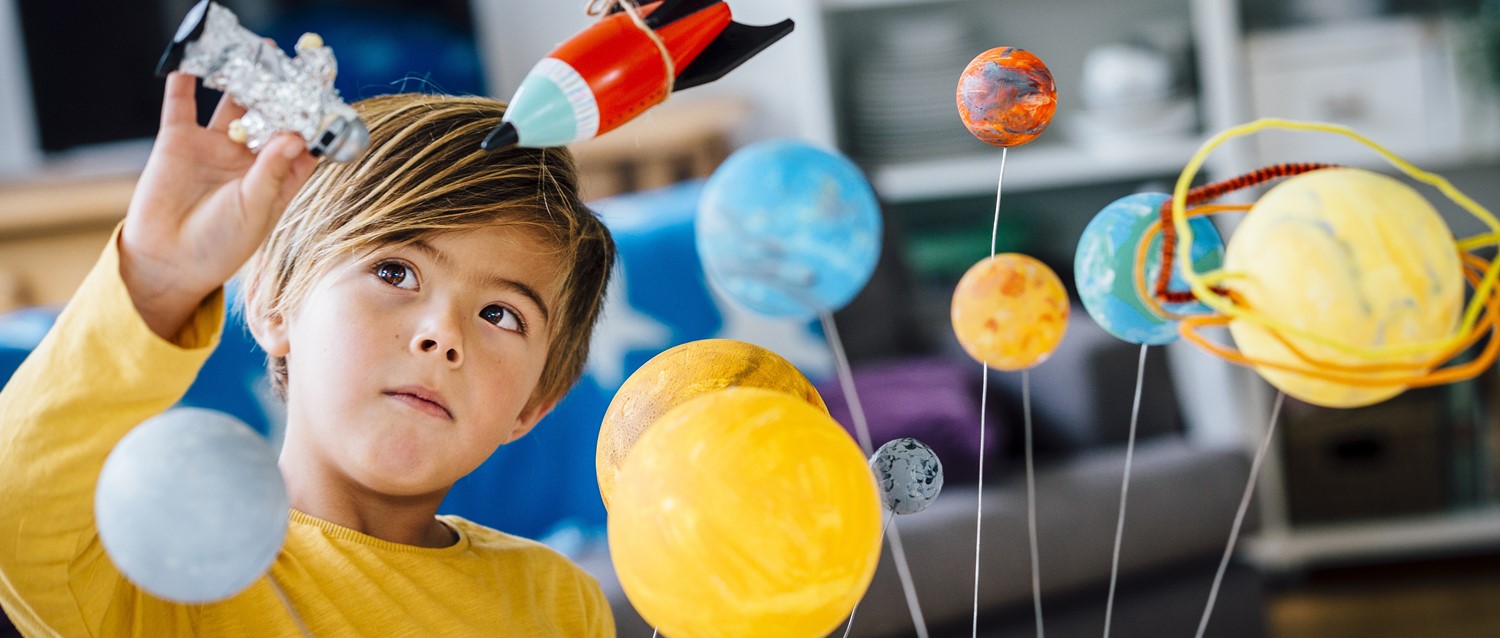
How can dogs help support families with autistic children?
Peer reviewed by Dr Sarah Jarvis MBE, FRCGPLast updated by Emily Jane BashforthLast updated 17 May 2022
Meets Patient’s editorial guidelines
- DownloadDownload
- Share
- Language
- Discussion
Owning a pet can offer a multitude of well-being benefits, especially for families with autistic children. For example, research from the University of Lincoln found that autistic children experience fewer meltdowns in the presence of a pet dog, with their parents' stress levels also being significantly lowered.
In this article:
Video picks for Autism spectrum disorders
Continue reading below
How do dogs help children with autism?
Studies have found that pets can have profound benefits on the social skills of autistic children. Dogs in particular have been found to aid the development of autistic children.
Benefits of pets and animal-assisted therapies can include:
Building communication skills.
Coping with anxiety.
Better engagement in conversations.
One study even suggested that autistic people smile more when they're around animals.
Dr Lorna Whittemore is a veterinary surgeon who works with autistic children and pets. She has several anecdotes from families who have benefited from having a dog at home.
"Potential benefits of dogs include nurturing an emotional bond with a pet. This allows a child to develop empathy, kindness, and responsibility. Some autistic children struggle with rejection-sensitive dysphoria, meaning they are sensitive to what other people think or say about them. Therefore, having the unconditional love of a dog can help to take away the anxiety of saying and doing the right thing."
Do dogs enhance autistic children's social skills?
Back to contentsSocialising can be difficult for autistic children. While some autistic children might know intuitively how to communicate with other people, others might struggle. For parents, it can be hard to explain to people outside their family why their child has trouble interacting.
The National Autistic Society explains how autistic children can appear withdrawn in social situations, and be difficult to comfort, and can have a tendency to be 'rule-bound'.
There are methods you can use to help your child develop their communication skills, such as seeking autism-friendly social groups in your local area. One study showed that children were more likely to engage in behaviours such as introducing themselves, asking for information or responding to questions when they had a family pet.
Dr Whittemore adds that the type of communication dogs can assist with doesn't have to be verbal. They can also help a child improve their body language and hand signals if they are non-verbal.
Continue reading below
Therapy dogs vs autism assistance dogs
Back to contentsAssistance dogs for autistic people are highly trained to help people with autism cope with specific challenges they encounter. This could include helping to reduce anxiety and meltdown responses, or fetching items for them and ensuring they cross the road safely.
Therapy dogs traditionally do not help just one person: they often visit a variety of settings (hospitals, care homes etc) and provide comfort to a range of people. A dog owned by a family is not officially a therapy dog.
However, a pet dog for a family which has a child with autism will need to have many of the same qualities as a therapy dog. They will need to enjoy human company and be patient, calm and friendly.
There are several charities that train and provide support or assistance dogs with a focus on autism.
Pet dogs do not have the same rights of access that assistance dogs have to public spaces.
Dr Whittemore explains that settings such as shops are obliged to allow assistance dogs, but not other dogs, on to their premises.
Both pet and assistance dogs can make a difference in the lives of families with autistic children.
Other benefits of dogs for autistic children
Back to contentsRoad safety
Assistance dogs can offer support to children who don't have a sense of speed or danger. This can also provide reassurance for their parents. Some autism assistance dogs are specially trained to provide children with confidence and to assess surrounding areas for danger.
These dogs can travel with children to any public place, such as shops, libraries, and restaurants. They will only cross the road when instructed to do so (such as by a parent's voice) and are trained to sit and prevent children from moving if they haven't been commanded.
Playing games
Dogs can be wonderful companions for autistic children. They can encourage children to be more outgoing and develop their communication skills by playing games. This might include playing hide and seek, which teaches a child about taking turns and sharing.
Other sensory games that encourage movement, fine motor skills and speech include tug of war and fetch.
Companionship
Dogs have the ability to bond quickly with children, allowing an autistic child to make a friend. Golden retrievers, Labradors and Labradoodles (lab-poodle mixes) in particular tend to have a calm temperament and high levels of intelligence.
Children can talk to their dog, knowing they will listen without judgement, and their pet can ease feelings of loneliness. This comfort from a dog can be incredibly reassuring to a child when they are upset, as a well-trained family pet can be a calming influence.
The unconditional love from a dog on a daily basis can help to build confidence and independence. The added responsibility of walking, feeding and taking care of a dog can teach children practical life skills.
Reduced stress
Dogs can offer support to the family as a whole. For example, the University of Lincoln surveyed 100 families who had attended Dogs for Good's Autism Family Dog workshops.
After two and a half years, stress and anxiety continued to reduce significantly in families who acquired a pet dog compared to families who did not.
Overcoming fear
One study found that petting a dog for 15 minutes can lower your blood pressure by 10%. This can be a great benefit to autistic children in their moments of stress. Having a dog by their side can help a child in other aspects of everyday life, from facing the fear of attending appointments to walking to a new school.
The sensory support a dog can provide is also important to mention. The physical pressure of a dog's head resting on a child's lap can calm the child down.
Continue reading below
How to choose a dog
Back to contents"If you are looking toward welcoming a pet dog rather than a trained assistance dog, then it is important to take the whole family into consideration. You should also consider your specific circumstances, strengths, and challenges. Many autistic children have one or both parents on the spectrum. Instead of searching online for 'the best dogs for autism', consider asking support workers and your veterinary surgeon for advice," she says.
There is a phrase that 'if you have met one autistic person, you have met one autistic person', meaning no two are the same. Therefore, different dogs will suit different families. It's important to choose one that suits your circumstances.
You should ask yourself questions such as:
How long do I have each day to exercise the dog?
How will I groom it?
Can I afford to feed it?
Will I be able to attend training classes?
The sensory profile of your child should also be considered when choosing a dog. For instance, you should consider whether your autistic child prefers the texture of smooth hair or fluffy coats. In addition, breeds with short faces make more noise than others and some breeds have a stronger smell to their skin than others."
What should you be wary of when having a therapy dog alongside an autistic child?
Back to contentsDr Whittemore explains that integrating a dog into your home can take time. You will need to alter your everyday routines, which might be problematic for autistic children to navigate. Therefore, it's crucial that the right support is offered during this adjustment period.
"In many ways, the reasons to be wary are the same as any dogs with children. Children need to be taught to be considerate of dogs. Parents or caregivers will need to be aware of signs of stress or anxiety in dogs to avoid problems. Assistance dogs have been trained and selected for their steady temperaments and the risks should be minimal but can never be entirely avoided," she says.
It should be noted that rescue dogs with unknown histories might be unpredictable around children, so you might not know how they will react when feeling threatened or scared. This is something to be particularly wary of, as children on the autistic spectrum are more likely to feel overwhelmed. Importantly, they can have a tendency to be loud, developing repetitive movements or vocalisations to cope with this.
"Loud noises can be stressful for dogs. A child having a meltdown may present a challenge for pet dogs not trained to deal with these behaviours. All families should familiarise themselves with signs that the dog may need some time alone too," adds Dr Whittemore.
Things to consider
You should also consider that, if you want an officially trained autism assistance dog, there could be a long wait depending on your area and fundraising.
You should also prepare for your child not to take well to a new family pet. In some circumstances, a dog will need to be re-homed. However, Dr Whittemore clarifies that this is less of a risk with an assistance dog as the process is more involved.
Additionally, you should try to envisage your family's future and whether it can accommodate a dog. For example, will you be moving to a different property where pets might not be allowed? Will you be able to fund looking after your dog's health?
Ultimately, a dog won't be right for every family and they are a big responsibility to take on.
"Although they are there to help, dogs need to have their needs met regularly. Feeding, walking, toileting, training, vet visits and so on can add physical and mental work for caregivers," says Dr Whittemore.
Alternatives to therapy dogs
Alternatively, a pet fish can be good for autistic children, since the tank can reflect the interests and sensory profile of a child. You can have a calm, soothing tank with one fish, or a busy tank with ornaments, UV lights and even glow-in-the-dark fish such as Danios.
Cats, while not trained to offer assistance, can be good for companionship too.
If owning a pet is not a possibility, there are other ways to interact with animals, such as reading to dogs projects, llama trekking, farm visits and riding for the disabled (RDA).
Patient picks for Autism spectrum disorders

Brain and nerves
How to tackle eating problems in children with autism
Parents of children with autism often find mealtimes incredibly challenging. This is because those on the autistic spectrum can be very restrictive about the foods they choose to eat, in some cases limiting themselves to only a few different types. This can lead to weight loss or gain, and deficiencies in certain nutrients in the long term.
by Rose Constantine Smith, ANutr

Brain and nerves
How should we support children with autism?
Around 700,000 people in the UK - more than 1 in 100 - are autistic. We consult a pair of experts to find out how children with autism communicate and interact with the world, and how, with the right emotional and educational support, parents can help them fulfil their social and academic potential.
by Julian Turner
Continue reading below
Article history
The information on this page is peer reviewed by qualified clinicians.
17 May 2022 | Latest version
17 May 2022 | Originally published

Ask, share, connect.
Browse discussions, ask questions, and share experiences across hundreds of health topics.

Feeling unwell?
Assess your symptoms online for free
Sign up to the Patient newsletter
Your weekly dose of clear, trustworthy health advice - written to help you feel informed, confident and in control.
By subscribing you accept our Privacy Policy. You can unsubscribe at any time. We never sell your data.